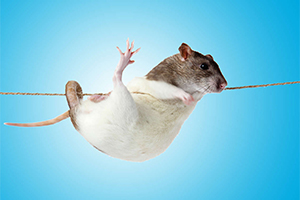An article published this month in Seeker.com highlights the most recent Rodent Research space mission which launched to the International Space Station on December 5th, 2018 carrying 40 BALB/cAnNTac mice from Taconic Biosciences. The study had three specific aims:
 "Flying in space can be a bit like growing old, because without exercise and proper nutrition astronauts on weeks- or months-long missions would come back to Earth with difficulties staying balanced, with weaker bones and muscles, and with other health problems that are usually confined to seniors or those with disease.
"Flying in space can be a bit like growing old, because without exercise and proper nutrition astronauts on weeks- or months-long missions would come back to Earth with difficulties staying balanced, with weaker bones and muscles, and with other health problems that are usually confined to seniors or those with disease.
To help better understand these effects, a new investigation on the International Space Station (ISS) will study aging and how the age of mice living in microgravity affects the progression of symptoms that mimic some human diseases." Read the complete article at: Seeker.com
- To evaluate muscle atrophy under microgravity conditions
- To quantify changes in tissue-specific molecular markers and
- To characterize the effects of microgravity on bone density during and after the mission
 "Flying in space can be a bit like growing old, because without exercise and proper nutrition astronauts on weeks- or months-long missions would come back to Earth with difficulties staying balanced, with weaker bones and muscles, and with other health problems that are usually confined to seniors or those with disease.
"Flying in space can be a bit like growing old, because without exercise and proper nutrition astronauts on weeks- or months-long missions would come back to Earth with difficulties staying balanced, with weaker bones and muscles, and with other health problems that are usually confined to seniors or those with disease. To help better understand these effects, a new investigation on the International Space Station (ISS) will study aging and how the age of mice living in microgravity affects the progression of symptoms that mimic some human diseases."






.jpg)

.jpg)
.jpg)
.jpg)
.jpg)





.jpg)
.jpg)


.jpg)



.jpg)




.jpg)

.jpg)
.jpg)



